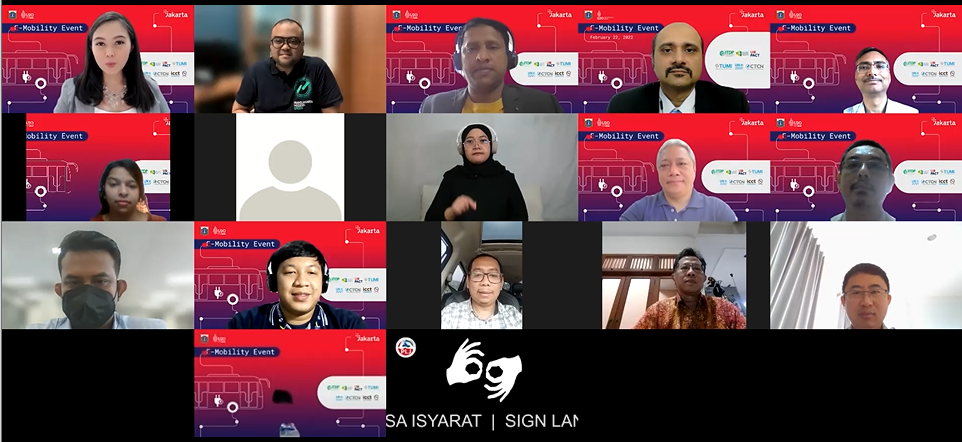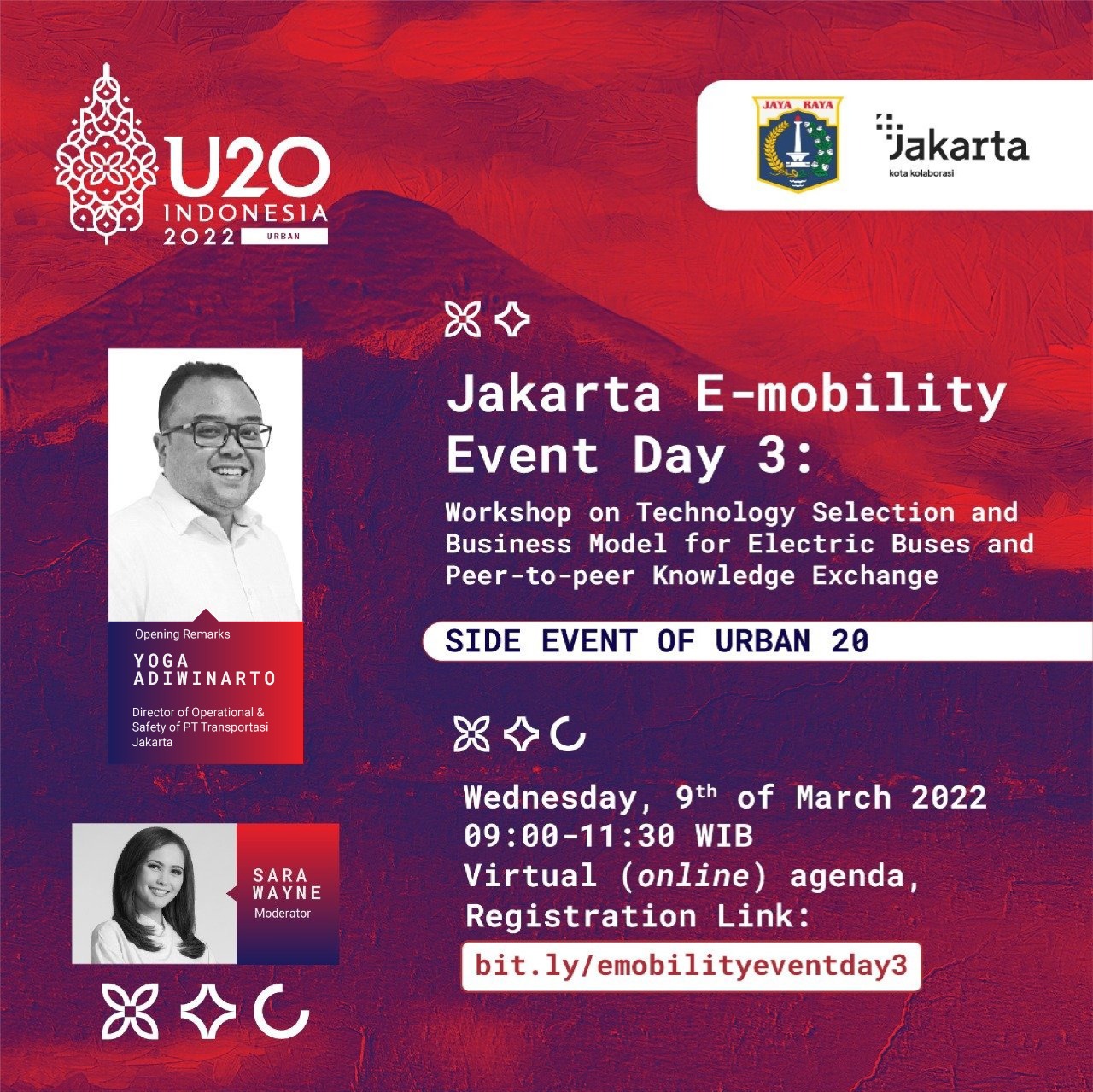The third day of the workshops in the “Jakarta E-Mobility Event” was held on March 9th, 2022, with the agenda of “Technology Selection and Business Model for Electric Buses and Peer-to-Peer Knowledge Sharing”. This virtual workshop was attended by several stakeholders, including TransJakarta, city officials, bus operators, OEMs, and APMs.
Yoga Adiwinarto, Director of Operations and Safety, Transjakarta, gave opening remarks on this day of the workshop, in which he stated that TransJakarta is the first BRT system that started to shift to e-Bus in Indonesia. TransJakarta committed in 2019 to operate 10,000 e-buses by the year 2030. With great assistance from the government, experts, and assisting organizations, TransJakarta commenced the operation of 30 e-buses in March 2022.
Vikrant Vaidya, Sr. Partner & VP EV Systems Engineering at pManifold Business Solutions, presented the BEBs and charging technology selection that has been done in India. He explained several technology options in bus electrification based on how the power is stored or generated, including Hybrid, FCEV, BEV, EREV, PHEV, etc. Finding the right technology to be applied in a country must consider the cost of energy, emission and pollution level, availability of domestic manufacturers, and other factors.
Followed by Vijay Medikonda, General Manager of Olectra shared his company experiences and findings as one of the major e-bus manufacturers in India. The three main goals of manufacturing e-buses are better economics, zero tailpipe emissions, energy security, and grid sustainability. He also reinstated the fact that e-bus deployment is very capital-incentive, thus the government and other stakeholders will need to provide significant financial support and incentives to commence the operations.
An overview of global new business models and financing mechanisms for e-buses procurement was presented by Sutanu Pati, ITDP Finance Consultant. He explained the differences between diesel and e-bus financing, investment, and procurement requirements. The main difference is on the allocation of funding resources, where the diesel buses are mostly funded by the Debt but for the e-buses are Equity. He emphasizes the differences between the two technologies and how the industry landscapes of diesel and electric buses in Indonesia are very different, which influences how the procurement and financial schemes apply to e-buses.
The last presentation was presented by Bianca Macedo, Investment and Partnership Manager at Zebra Initiative, where she presented the model and financing mechanism for BEB deployment in Latin America. She explained that e-buses could have lower TCO (represents the sum of capital, operational, and maintenance costs) than ICE buses, due to the lower maintenance cost for e-buses. She also stated that a key business model in e-bus operations is the unbundling or separation between asset ownership and bus operations.

The second session was conducted in two breakout rooms. Gitafajar Saptyani, Senior Project Advisor at C40 Cities Finance Facility, led the first breakout room discussing the E-Bus Roll-out action plan, including TransJakarta experience in the e-bus implementation plan, e-bus procurement process and requirement, and the taxation and incentive for e-bus procurement. It was attended by TransJakarta, OEMs, the Ministry of Industry, and the Ministry of Finance. This breakout room discussed Transjakarta’s obstacles during the implementation of e-bus, such as the charging process and charging infrastructure, and electrification supports for TransJakarta, such as developing an e-catalog of electric bus fleets from BPPJ, taxation, and incentives.
In the second breakout room, Sharada Gollapudi, ITDP International E-Mobility Consultant, led the peer-to-peer knowledge exchange between Olectra, and bus operators in Jakarta to discuss the case study of e-bus deployment in the Indian cities of Mumbai, Pune, and Hyderabad. This session discussed the technical aspect such as the battery capacity, charging technology, and range of e-buses deployed in India, as well as how it correlates to other service-related key aspects such as the types of routes in which the buses are deployed in, selection, and considerations for charging times, as well as how passenger load factor affects the performance of the electric buses.
Speakers and panelists presentation are available here.


